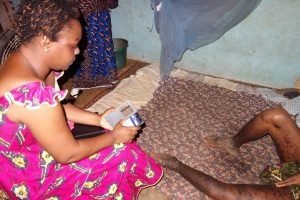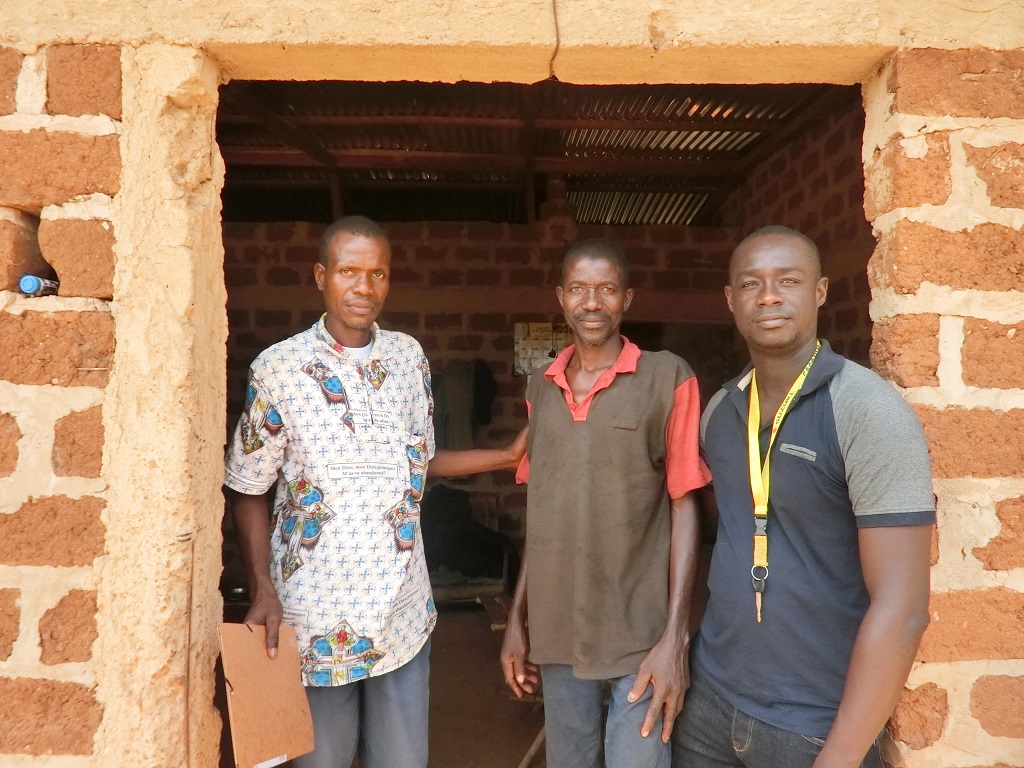This blog originally appeared on The Huffington Post.
Several days a week, Isabelle Marie Kouame, a community health worker (CHW) in rural Dimbokro, Côte D’Ivoire, makes home visits to clients in her small town. She checks on those who have recently visited the health center – ensuring they’re still in good health – and is always on the lookout for new clients.
When she arrived at the door of Aka, a 40-year-old mechanic, Isabelle pulled out her phone and tapped the CommCare referral application. This mobile technology helps CHWs identify and track next steps for their clients. The CommCare platform stores much needed information and delivers it instantly, allowing for efficient referrals and timely follow-up by health facility providers.
“Before, home visits and referrals required a lot of paperwork and were very tiring,” says Isabelle. “But with CommCare, the work is much easier and quicker.”
After Aka answered basic questions, the app did two things: prompted Isabelle to refer him to the health center; and sent a notice to the phone of Nurse Angeline Houman at the nearby health center that Aka would be coming. When two days passed and he didn’t arrive, Angeline and a CHW visited Aka at home and accompanied him to the health center. There, he was diagnosed and treated for tuberculosis.
“I feel cured,” he thought to himself.

Aka’s referral and treatment reflect a commitment by the government of Côte D’Ivoire, in partnership with Jhpiego, to bring basic health services closer to people where they live and to change the approach taken in treating chronic conditions, including HIV. For the past year, Jhpiego has been implementing this new chronic care model that has expanded the role of frontline health care workers in treating people living with HIV. A key aspect of this community health initiative centers on the government’s decision to provide nurses and midwives with the training and authority to prescribe HIV medication – a task that was formerly reserved for doctors based in larger cities.
The new model seeks to remove the stigma associated with HIV and other chronic diseases, and streamline care by incorporating home visits and a sophisticated, yet easy-to-use referral system. Community-based health workers are the backbone of this model: 145 nurses and CHWs have been trained by Jhpiego since the last quarter of 2016 to conduct home visits in six districts and 44 health facilities in Cote D’Ivoire.
The program – funded by the Centers for Disease Control and the President’s Emergency Plan for AIDS Relief (PEPFAR) – began in 2013, and is being implemented by Jhpiego in close collaboration with PEPFAR partners the Elizabeth Glaser Pediatric AIDS Foundation and Foundation Ariel Glaser. Since start up, more than 635 home visits have been conducted. Through the CommCare application, introduced in 2015, 318 people have been referred in the past six months to their local providers. Appointment cards have also been introduced into the process to remind patients about their health center visits and ensure they receive service more quickly, regularly and efficiently.
Loukou Kouame, a yam farmer in another village, was also sick at home before a CHW referred him, using the CommCare app, for care.
“I was suffering from lower back pain and I had lost a lot of weight,” he recalled. “When the CHW weighed me, I was hardly 37 Kg (82 pounds). He was visiting patients living with chronic diseases and he advised me to go visit the nurse at the health center in the village. At first, I didn’t want to go because I didn’t think I could get better.”
Persuaded by the CHW, Loukou visited the local health center, where he was diagnosed with HIV and began antiretroviral treatment. From a reluctant patient with little hope for the future, Loukou is now feeling better and has put on 40 pounds.
Nurse N’da Ble Avi Gilles Edgard said of his approach to his care: “Loukou respects all of his appointments and takes all of his medications properly. He welcomes the CHWs into his home and participates regularly in health club meetings.”

